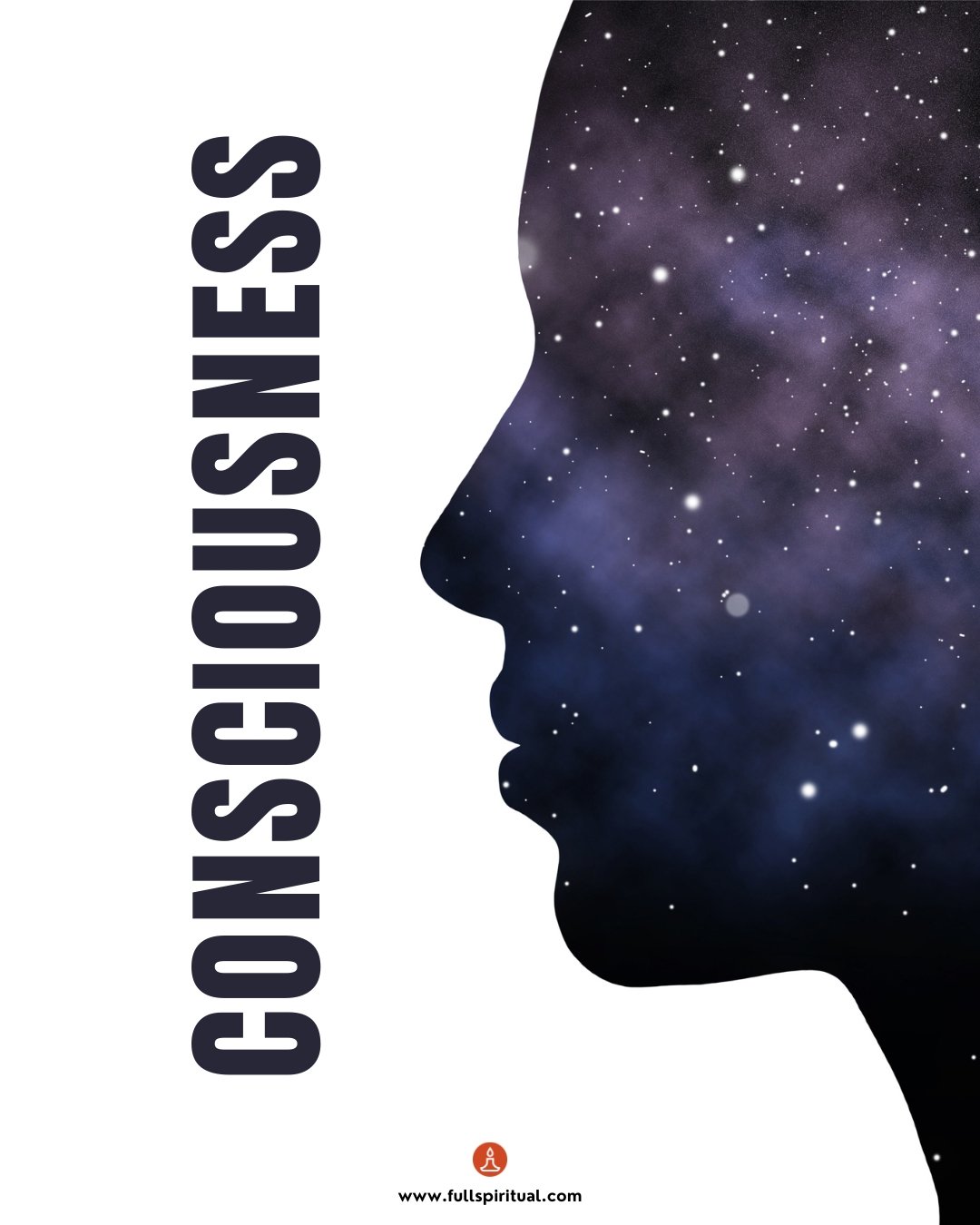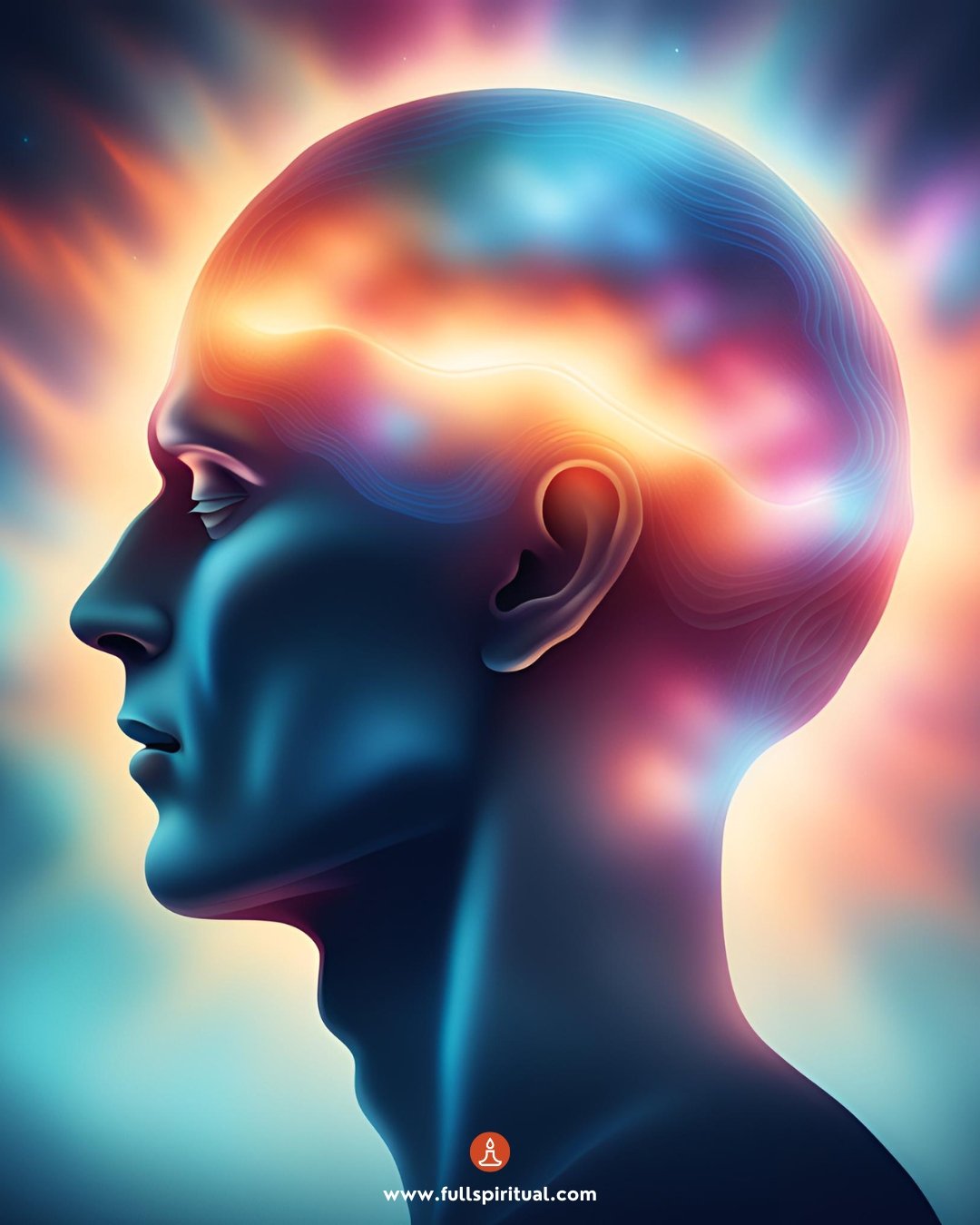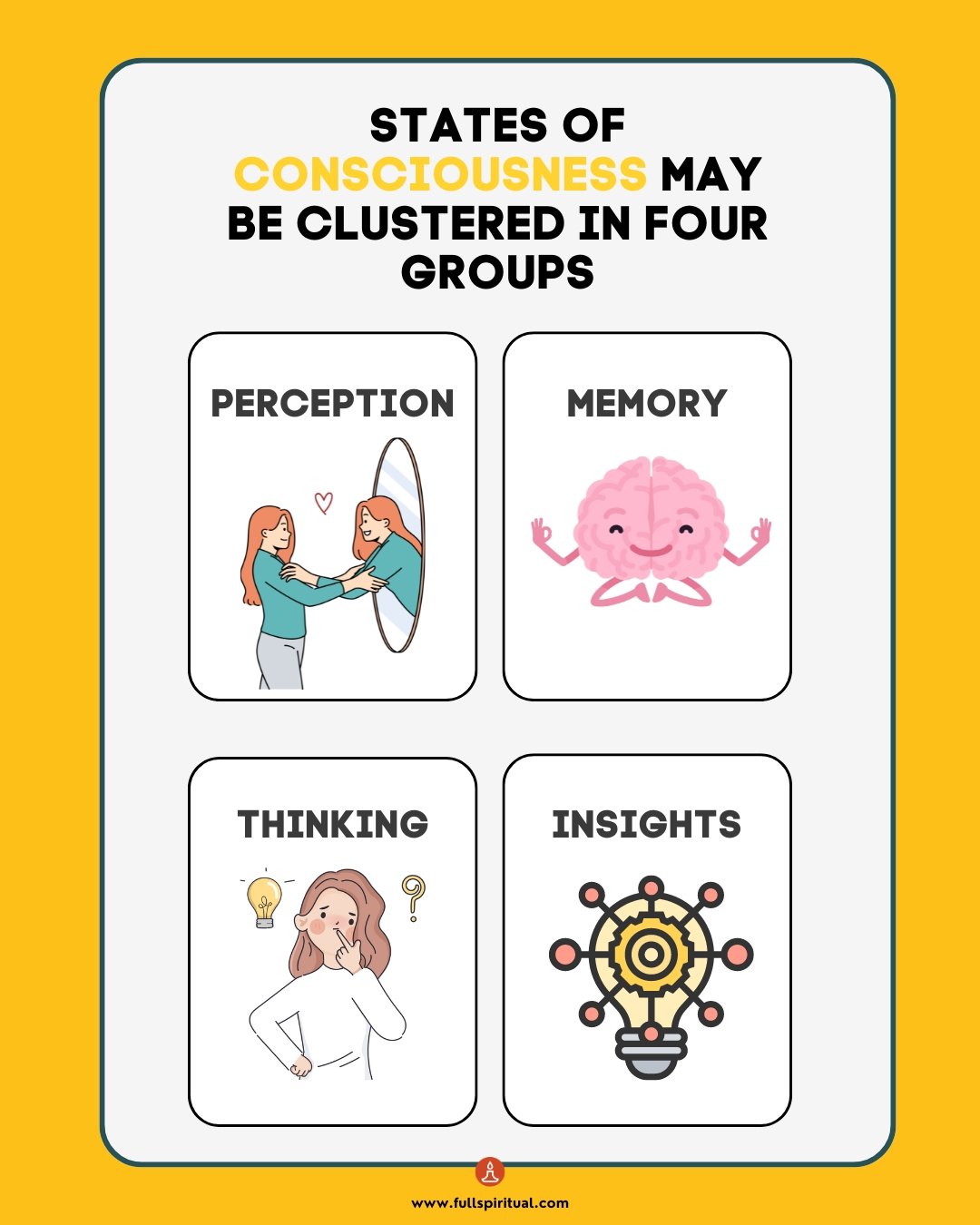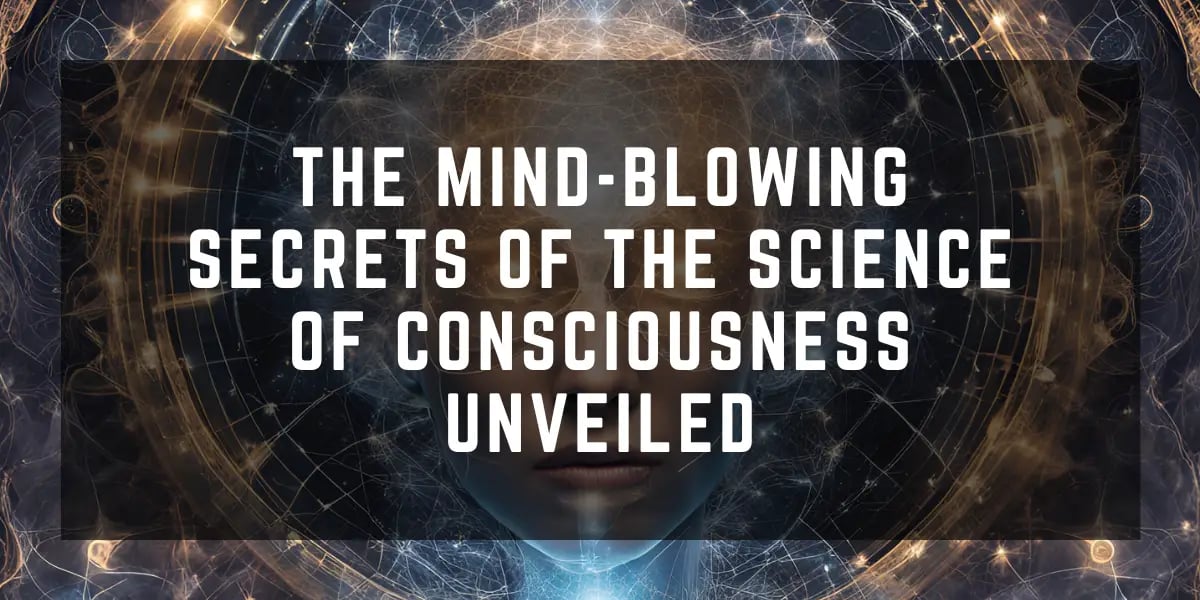Spiritual
The Mind-Blowing Secrets of the Science of Consciousness Unveiled – Prepare to Have Your Reality Shattered!
Have you ever wondered what lies beyond the veil of your consciousness?
The science of consciousness unravels some of the most profound mysteries of our existence, from determining who we are and why we behave as we do to understanding how our minds work – all to gain greater clarity about ourselves.
In this article, I’ll be divulging the astonishing truths of what is known as ‘consciousness science’ – a field that can ultimately unlock even deeper levels of knowledge about the human condition!
Table of Contents
Exploring the Mystery of Consciousness

Delving into the origins of consciousness, researchers seek to unravel the enigma of how consciousness emerges in complex biological systems. Investigating the relationship between the mind and brain opens doors to understanding how neural activity gives rise to conscious experience. Furthermore, examining altered states of consciousness sheds light on unique mental states, such as dreaming or meditation, that offer insights into the nature of consciousness.
The Brain Does Not Control Your Thoughts – It Just Allows Them to Happen
For years, the prevailing idea was that our minds control our actions. If we ponder over a decision or wait for an ideal moment before acting, then we are said to be exerting conscious control over them – which is what defines us as sentient beings!
However recent discoveries in neuroscience have revealed that the brain does not necessarily dictate how we perceive reality. Instead, it merely allows thoughts and recollections from previous experiences to occur.
Take my case: I believe that I’m fully conscious, but it’s more likely that my thoughts are being orchestrated by something else within me. Actually, it could even be multiple entities, each with its own agenda!
Subconscious Mind Is The Kind Of Thing You May Often Feel You Are Just A Dream

It’s easy to become disassociated with our own minds’ activities and forget that there is another part of our consciousness – one that is operating simultaneously.
To make matters more complex, we typically view ourselves in two distinct categories: the conscious mind and the subconscious mind. Our thoughts, feelings, memories, and actions are expressed within both of these realms – where they may often feel as though they belong to only one!
The conscious mind is the part you experience when you’re awake. It’s what allows us to discern right from wrong; understand language; carry out logical reasoning; and more. On the other hand, your subconscious mind is what governs all those things that occur behind closed eyelids.
Despite the fact that you may not be consciously aware of it, your conscious mind is constantly interacting with its counterpart. These interactions can take place during REM sleep when you are asleep but dreaming–or even while you are awake!
The Problem With The Conscious Mind Is That It Seldom Gets What It Desires
According to the renowned neuroscientist and computational biologist, Izz ad-Din Al-Qassam, a disembodied consciousness is analogous to a pet dog that requires food, water, and shelter. This is where we find its most fundamental attribute: a craving for well-being.
However, this desire can oftentimes be thwarted by external factors such as insufficient resources or even unmet expectations. Consequently, it becomes apparent that certain expectations among the mind itself may have an influence on its contentment – akin to what happens when one expects an anticipated outcome from any given situation. In essence: if circumstances don’t offer optimal conditions then one’s mindset will be altered accordingly; conversely, if circumstances are favorable for success chances then it could lead to feelings of elation and optimism.
If these issues persistently arise in our lives, eventually it’s likely that we’ll become desensitized to them; after all, why should we expect perfection when everything seems so perfect right now? If we’re not satisfied with what we’re currently experiencing then perhaps reexamining our current situation might yield some improvement in circumstances – thus leading toward feeling contentment!
The Importance of Transcendental Meditation for the Science of Consciousness
For decades, Transcendental Meditation has been a cornerstone of the science of consciousness. This practice may sound unfamiliar to you – yet it is absolutely essential if you wish to comprehend why we exist and how our experiences impact our state of mind.
Transcendental Meditation not only helps you to achieve inner peace and cultivate a more contented disposition; it can also help shed light on some fundamental questions regarding life and its meaning!
What is enlightenment? How does one attain it? Does one need to go through any particular life stages in order to gain this knowledge? And what are the best ways to make progress on these issues?
Scientific investigations into transcendental meditation have yielded fascinating insights into the nature of consciousness, offering us tantalizing glimpses into the future of human potential. It is a form of self-improvement that could upend conventional notions of success – enabling individuals to realize greater levels of contentment with their lives while simultaneously striving toward greater fulfillment!
States of Consciousness May Be Clustered in Four Groups –

Perception
If our experience of reality were a clean and uncomplicated one-act play, it would be far less fascinating than life. It’s not just that our perception is invariably incomplete – instead, there may be four distinct states of awareness that we can encounter during an everyday encounter with the world!
The first group comprises obliviousness. This condition describes when you’re in a daze, your mind is vacant or occupied by thoughts of nothingness. Individuals who succumb to this state often fall asleep or are otherwise absorbed with their activities while leaving the rest of the world temporarily inconsequential – even if they still remain acutely aware of their actions within those circumstances!
When slipping into sleep, a person either drifts off into oblivion or becomes so thoroughly enraptured by dreams that he or she is completely oblivious to the physical realm; still, your body remains fully functional. So don’t make any rash decisions should you find yourself unexpectedly nodding off at work or in traffic – if possible take an armrest for security purposes!
Energetic absorption infuses us with a sense of blissful calm as well as quieted nerves. However, this state can also be experienced after an intense activity like dancing or taking part in heavy lifting; alternatively, it could arise from consuming stimulating substances like coffee or tea.
When we are fully engaged in a task and enjoying its rewards, we exhibit what’s known as effortless competence. This profound sense of serenity can also be induced by consuming certain drugs like alcohol or cigarettes; along with exploring such concepts as meditation and transcendence etc..
Memory
It’s a common misconception that our memories are merely factual records of the past. In reality, they’re also capable of encoding knowledge and events that are yet to occur as well as recalling previously inaccessible information.
This phenomenon enables us to access knowledge from long ago without having to repeat it word for word – cramming it into our brains like beads on a string!
Our memories can be accessed anytime we wish, allowing us to revisit our earliest experiences and those fondest in our hearts – even if they happened years ago!
Thinking
We arrive at the fourth pillar, which is thought. This intricate process of analyzing and categorizing information is a cornerstone of how our minds function. Although it may not seem like much on its own – it’s essential for cognition!
Indeed, we cannot comprehend any meaning without discerning that which preceded it. For example: if one is thirsty, then an awareness of this predicament must precede any actionable solution; however, if one desires water but lacks access to it – such as in the case being explored here – then an analysis of this situation would be necessary before taking any steps towards obtaining one!
Thinking involves elucidating why something occurs or what should be done. It entails recognizing patterns in life experiences and utilizing them as a basis for decision-making: whether that be regarding personal matters or those involving professional pursuits.
Do you find yourself giving equal credence to all your experiences? Do you analyze them thoroughly before evaluating their significance? If so, then it may be time to reevaluate how you’re perceiving things. When we privilege any single experience over another, we risk overlooking truer truths; after all, people are not mere vessels containing only one facet of themselves! Ultimately everyone possesses infinite facets that together comprise their true selves; no person can possess more than one identity at any given time.
How do you approach the events of your day? Are you able to extract meaning from anything that happens? Explore different perspectives on the issues facing your life today!
and Insight
An insightful revelation may be the truth about your situation, or it may simply corroborate an existing assumption. It is possible to receive a wisdom nugget from someone else’s experience; if so, it can help guide you towards an enlightened state of mind!
Have you ever realized that you were living in a way that wasn’t truly fulfilling? If so, don’t fret- there is plenty you can do. Consciously altering your lifestyle is the key to unlocking true contentment and fulfillment that is all yours.
The Various States of Consciousness May be Linked Through the Holographic Theory of Reality
For those unable to discern the differences between the various states of consciousness, one may choose how they would like to be most often: alert and mobile or resting and relaxed. However, even these modalities are merely a choice – there is no perceived limitation in terms of what state of mind one might prefer during any given moment!
Indeed, as we age and become more accustomed to our surroundings our sleep patterns shift; although we may wake up refreshed (albeit groggy) – this alteration has been observed across numerous cultures. It’s true that it takes some time before individuals look upon slumbering as a particularly desirable state of affairs – but why not take it at face value if you don’t mind?
The remarkable thing about consciousness is that it transcends time and space – even though our brain can only perceive information within the confines of its normal range (wavelengths on an electromagnetic spectrum). Through quantum physics, scientists have demonstrated that light can manifest itself as particles and vice versa; just as when looking at clouds through an electron microscope we can observe both molecules and photons simultaneously. That makes perfect sense if we consider that each type of object exists simultaneously throughout creation! Similarly, we experience our physical senses in tandem with thought forms such as memory; while other subtleties such as emotionality coexist alongside the tangible world that perceives our senses. Ultimately all things appear simultaneous in relation to those around them – yet paradoxically this reality remains a mystery!
Why Some People Are Natural Psychics
Sadly, this is not the case for everyone; some individuals are born with an innate aptitude for perceiving and interpreting psychics’ signals. There may be a genetic disposition to gazing within – as well as to recognize when one is communicating with spirits!
This propensity is predominantly inherited in families, where relatives typically possess similar abilities. For instance, research has shown that there is often a direct correlation between twins who manifest psychic abilities together.
Genetics also plays a role in predisposing certain individuals towards experiencing lucid dreams or the ability to converse with deceased loved ones. Additionally, while rarer than other types of extrasensory experiences, some people have been known to experience precognition – foreseeing future events without any outside influence whatsoever!
Studying Neuronal Correlates of Consciousness
Understanding neural activity and conscious experience is crucial in linking brain processes to subjective awareness. Exploring the temporal dynamics of consciousness reveals how consciousness fluctuates over time, providing valuable insights into our cognitive processes. Integrating information theory in consciousness studies offers a framework to analyze how information processing in the brain relates to conscious phenomena.
Interdisciplinary Perspectives on Consciousness
The interplay between the philosophy of mind and neuroscience bridges the gap between subjective experience and neural mechanisms, enriching our understanding of consciousness. Examining consciousness through the lens of cognitive science highlights the cognitive processes involved in shaping our awareness. Exploring quantum physics implications on consciousness challenges traditional views, suggesting quantum phenomena may play a role in understanding consciousness.
Leaders in the Science of Consciousness
Neuroscientist Christof Koch provides valuable insights into the neural correlates of consciousness, emphasizing the importance of brain activity in shaping our conscious reality. Philosopher David Chalmers has made significant contributions to consciousness studies, particularly through his work on the ‘hard problem’ of consciousness, which questions why and how physical processes in the brain give rise to subjective experience.
The Role of Artificial Intelligence in Understanding Consciousness
The development of neural networks and machine consciousness offers a unique perspective on how machine learning can inform our understanding of consciousness. By simulating aspects of human cognition, these technologies allow researchers to explore the boundaries between artificial and biological intelligence, potentially shedding light on the mechanisms underlying consciousness.
Scientific American’s Coverage of Consciousness Studies
Scientific American’s coverage of consciousness studies brings the latest research and discoveries in the science of consciousness to a wider audience, promoting public engagement with this complex topic. Supporting science journalism on consciousness research ensures accurate and informative reporting on advancements in the field, fostering a better understanding of the intricate nature of consciousness.
Tucson’s Contribution to the Center for Consciousness Studies
Tucson’s contribution to the Center for Consciousness Studies at the University of Arizona fosters a hub for interdisciplinary collaboration and research in the study of consciousness. This center hosts the biennial “Toward a Science of Consciousness” conference, bringing together experts from diverse fields to discuss and advance our understanding of consciousness.
The Theory of Consciousness
Various theories of consciousness attempt to explain how and why we experience the world subjectively. These theories range from philosophical perspectives to scientific models, each offering different insights into the nature of conscious experience. Phenomenology, the study of structures of consciousness as experienced from the first-person point of view, plays a crucial role in these theories, emphasizing the importance of subjective experience.
The Hard Problem of Consciousness
The hard problem of consciousness, as articulated by David Chalmers, questions why and how physical processes in the brain give rise to subjective experience. This problem remains one of the most significant challenges in consciousness studies, prompting ongoing debates and research to uncover the fundamental nature of conscious experience.
Life and Consciousness
Exploring the relationship between life and consciousness involves examining how living organisms experience and interact with their environment. This line of inquiry not only enhances our understanding of biological processes but also raises profound questions about the nature of existence and the potential for consciousness in non-biological systems.
Science and Spirituality
The intersection of science and spirituality in the study of consciousness offers a holistic approach to understanding the nature of existence. By integrating scientific research with spiritual insights, this interdisciplinary perspective seeks to uncover deeper truths about the human condition and the universe.
In conclusion, the science of consciousness is a veritable treasure trove of knowledge that could alter the trajectory of your life. It could lead to an awakening and further awakenings, bringing greater clarity into any given situation and opening up vistas of possibility beyond what you ever imagined. Are you interested in learning more about this captivating subject? Then don’t hesitate to explore further the intriguing articles and research available!
Conclusion
The science of consciousness is a veritable treasure trove of knowledge that could alter the trajectory of your life. It could lead to an awakening and further awakenings – bringing greater clarity into any given situation and opening up vistas of possibility beyond what you ever imagined!
Are you interested in learning more about this captivating subject? Then don’t hesitate to browse our intriguing articles!

